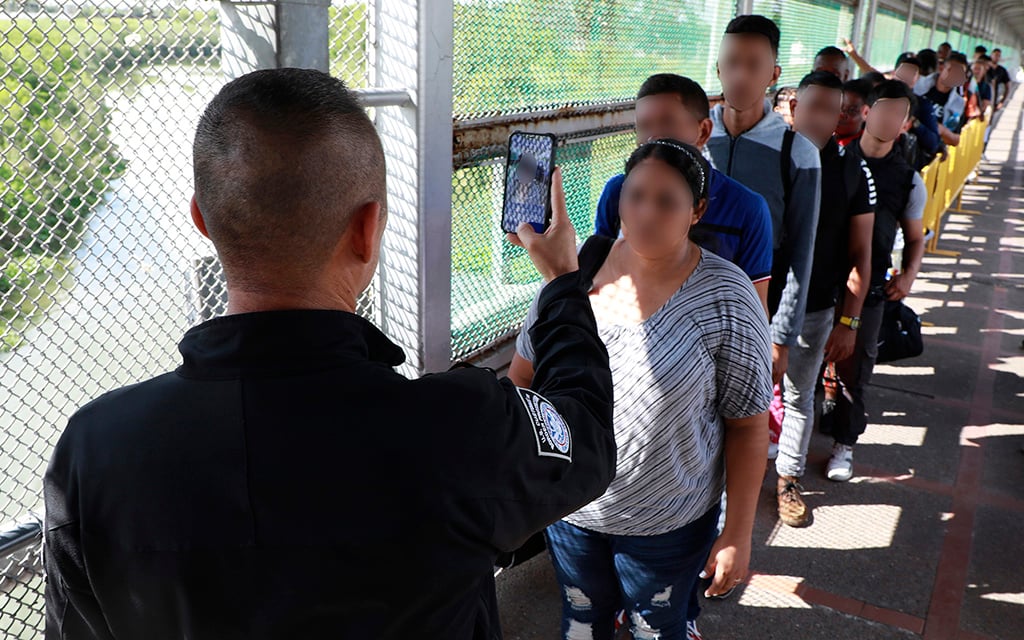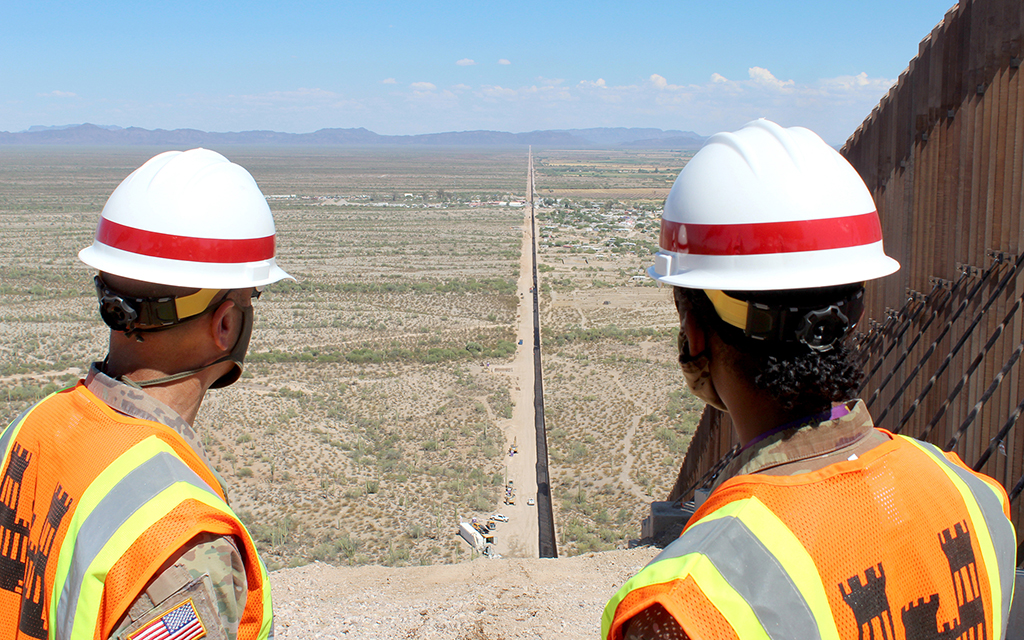WASHINGTON – The number of migrant encounters at the Southwest border plummeted in June, falling to the lowest level in more than two years, according to new data from Customs and Border Protection.
The 144,571 encounters in June was a 30% drop from May, and the lowest since February 2021, the second month of the Biden administration. In Arizona, encounters fell 26% for the month, to a total of 33,329 in the Tucson and Yuma sectors.
June is the first full month of CBP data since the lifting of Title 42, a public health policy enacted during the pandemic that let border officials turn away migrants on public health grounds. The administration had braced for a surge in encounters after the end of Title 42, but the numbers instead went down in May and June.
Analysts say it’s too early to draw conclusions on the trend in migration, however, noting that a decline in encounters is typical for this time of year.
“The numbers usually drop in this month and they slowly pick up and there’s an increase in the winter months,” said Jeanne Batalova, senior policy analyst for the Migration Policy Institute. “That has a lot to do with the weather. No matter what’s happening on the policy front, the weather … plays a significant role.”
Diego Pina Lopez, associate director for Casa Alitas, a migrant border shelter in Tucson, agreed that numbers are typically down this time of year. But he said recent surges in the Tucson sector – including 30,140 in May, the second-most among the nine Southwest border sectors – “brings a concern” because of the harsh conditions of the Arizona desert.
Batalova also said the decrease in numbers could be part of a wait-and-see approach by migrants after the end of Title 42. She said migrants often “wait a little bit to see what it actually means for them.”
But Troy Miller, the CBP official currently acting as commissioner, was quick to attribute the decline to the work of the agency and its officers.
“Our sustained efforts to enforce consequences under our longstanding Title 8 authorities, combined with expanding access to lawful pathways and processes, have driven the number of migrant encounters along the Southwest border to their lowest levels in more than two years,” Miller said in a prepared statement.
Among the decreases, CBP reported that the number of migrants encountered between ports of entry by Border Patrol agents fell by 42% in June, to 99,545 people.
Encounters with single adults fell 40% in June, followed by unaccompanied minor encounters, which were down 27%, and families, which showed a 9% decrease.
The data also shows that more than 38,000 encounters were with individuals who arrived at a port of entry with a scheduled appointment for processing through the CPB One app, Under the Biden administration’s new asylum rule, migrants cannot seek asylum in the U.S. unless they first book an appointment through the CBP One app, asked for and were denied protection in another country or have permission to enter under parole processes.
While most advocates cheered the end of Title 42, they are not happy with the administration’s new asylum rule, which was implemented the day Title 42 was lifted. The new policy is keeping potential beneficiaries of asylum out of the country, advocates say.
“The Biden administration is calling it a win, but advocates see it as something that is not great because many people are being denied access to asylum and that’s the issue here,” said Aaron Nodjomian-Escajeda, policy analyst for the U.S. Committee for Refugees and Immigrants.
“People should be able to have access to asylum regardless of their manner of entry,” he said.
While immigration advocates say the new asylum policy is keeping migrants out, supporters of tighter borders see it the other way. They call it another example of the Biden administration’s “schemes” to get migrants into the country.
Ira Mehlman, media director of the Federation for American Immigration Reform, said that migrants who would have been encountered by Border Patrol agents between ports of entry under the old policy are “now being redirected to ports of entry using the app and so they’re recorded as encounters” by the Office of Field Operations.
“They’re moving migrants off one set of books and onto another set of books, but the net impact on the communities that are receiving them are exactly the same,” Mehlman said.


